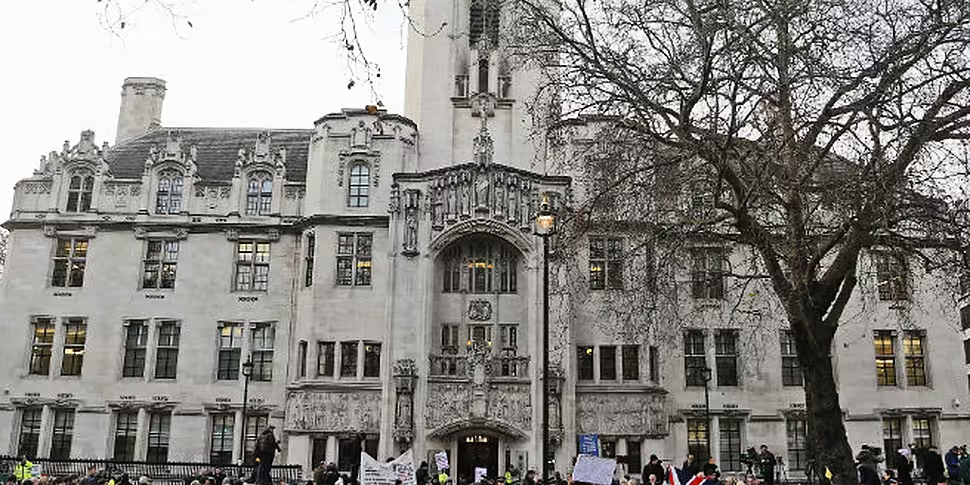The powers invoked by the British government to begin divorce procedures from the European Union are not an out–of-date "ancient relic" but a pillar of the British constitution, the country's Attorney General has told its Supreme Court.
Jeremy Wright made his remarks on the first day of a landmark case that will decide who has the power to trigger the UK's exit from the European Union - the British government or parliament.
It is seen as the most significant constitutional battles in decades. Underlying the major implications in the case, it is the first time in the court's history that all 11 judges are sitting together.
The case revolves around Article 50 of the Lisbon Treaty, which starts two years of formal negotiations between London and Brussels about the divorce.
Theresa May wants to trigger the article by the end of March, using centuries-old government powers known as royal prerogative.
"It raises issues going to the very heart of our constitutional settlement," Mr Wright told the court as he opened the government's arguments.
He said the use of prerogative powers - meaning MPs do not have to vote on the matter - did not undermine parliament and that the June referendum on EU membership had been held in the "universal expectation ... that the Government would implement its result".
The prerogative was not "an ancient relic", but a "fundamental pillar" of the constitution, he said.
James Eadie, also representing the government, described the prerogative as "a long-standing, well-recognised set of powers firmly established in our constitutional arrangements" which were "fundamental to our constitution and essential to effective Government".
Verdict expected in January
The case was brought by businesswoman Gina Miller, who says parliament must decide on the issue.
Last month, three British High Court judges agreed with her side, but the government appealed that ruling. The Supreme Court hearing will last until Thursday, with verdict expected in January.
The hearing will be the most televised UK case ever, with the proceedings streamed on the Supreme Court website and broadcast on television.
In a heated political climate, the judiciary has been accused by some Brexiteers and newspapers of seeking to thwart the Brexit process.
As the court convened in central London, some held up signs saying "Unbiased judges? This is an establishment stitch-up!", while other activists wearing judges' wigs and robes rode an open top bus past the Supreme Court in support of the judges.
In his opening remarks, the court's president, David Neuberger, stressed the court was aware of the "strong feelings associated with the many wider political questions surrounding the UK's departure from the European Union" - but those questions were not the subject of the appeal.
"This appeal is concerned with legal issues and, as judges, our duty is to consider those issues impartially, and to decide the case according to the law. That is what we shall do," he said.
He also noted that individual members of the public in the case had received "threats of serious violence and unpleasant abuse in emails and other electronic communications" and warned those responsible that "legal powers" existed to deal with them.
Mrs Miller says she has received abuse and death threats since the High Court ruling.









